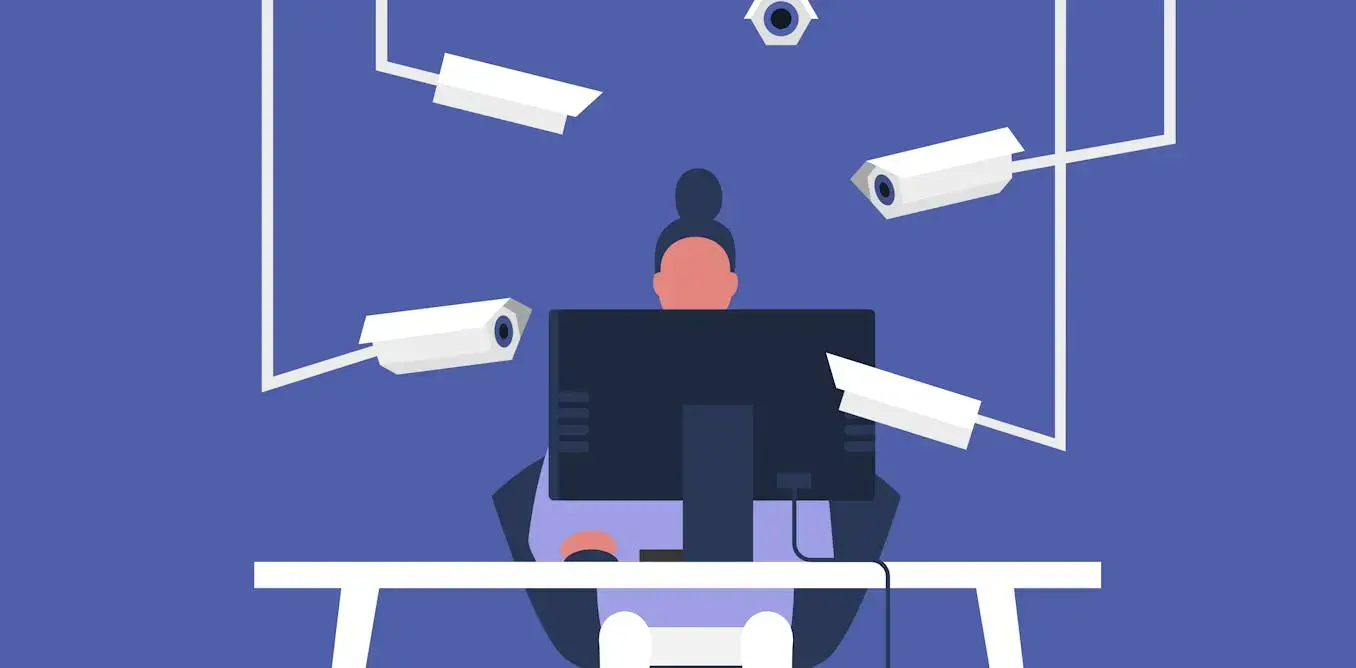Emotion artificial intelligence uses biological signals such as vocal tone, facial expressions and data from wearable devices as well as text and how people use their computers, to detect and predict how someone is feeling. It can be used in the workplace, for hiring, etc. Loss of privacy is just the beginning. Workers are worried about biased AI and the need to perform the ‘right’ expressions and body language for the algorithms.
This would absolutely flag me for something. I tend to have flat delivery, low pitch, avoid eye contact, etc. and when combined with other metrics, could easily flag me as not being a happy enough camper.
I mean don’t get me wrong, I’m never going to be happy to be working, but if I showed up that day, I’m also in a good enough headspace to do my job… and if you want to fire me for that… for having stuff going on and not faking vocal patterns…
This is why I don’t want to work anymore. It’s gotten so invasive and fraught if you happen to be anything but a happy bubbly neurotypical fake. And that’s wildly stressful. I’m not a machine, and refuse to be treated like one. If that means I have to die in poverty, well, dump me in the woods, I guess.
This shit should never be legal.
“Make Neurodiverse People Homeless Again”
This is another sign of what’s already going on. It’s getting into backlash territory.
“Our smart securicams don’t trust you” is the new “You’re not a good culture fit.”
Bring in Universal Basic Income. Introduce emotion tracking as job KPI. Fire me because I don’t emote per LLM datasets. Live comfortably unemployed.
Best dystopian outcome. A guy can dream, right?
This feels like the AI equivalent of men telling female workers to smile more. I’m totally sure that bias wasn’t cooked into these algorithms. Honestly, how is this not profiling for neurodiverse individuals?
Truly dystopian
It totally is. Prepare to be screwed!
how could someone view this as anything other than dystopian?
It’s easy if you’re a sociopath.
Which is what the twenty-first century might be selecting for. They’re the only ones that seem like they’re doing okay right now.
I’d argue that the 20th century already selected for that and we are reaping the “rewards” as we speak.
I find it difficult to disagree with you.
Absolutely. They’ll be the winners.
Already are
There are a lot of lonely people without social support groups or who otherwise may not be willing or able to seek help when they need it. Having an AI that is in a position to go “hey, are you alright?” Could be a boon for those folks.
There are also situations where a worker could be a problem or even a danger to their co-workers, and having an AI that’s able to pay attention and potentially intervene in those situations could help prevent trauma from happening in the first place.
I’m not saying this is what it’ll be used for, just answering your question about how it could be viewed in a non-dystopian way.
Having an AI that is in a position to go “hey, are you alright?” Could be a boon for those folks.
Oh, thanks, I’m cured. Definitely well worth the constant breach of my privacy.
Is that not the first step toward providing aid? Would you rather the AI simply issue a prescription or something?
Anyway, as I said, I’m not saying this is how it goes. I’m just presenting a view that’s non-dystopian, as was explicitly asked for. The AI could easily be operating under rules that would prevent it from telling anyone else of the trouble it had detected until you give it permission, if that would satisfy your privacy concerns.
I’d rather not have an “AI” invade my privacy in general.
The AI could easily be operating under rules that would prevent it from telling anyone else of the trouble it had detected until you give it permission, if that would satisfy your privacy concerns.
What? That’s not how those “AIs” work at all. lol
I’m not talking about any specific currently-existing AI, I’m talking about a hypothetical one. It is indeed possible to set up an AI in such a way that it wouldn’t tell anyone else what’s going on. It’s just a computer program, it can be set up however one wants it to be set up.
I’d rather have coworkers who give at least half a fuck. Just during work hours.
I’m glad to live in a place where that kind of surveillance is already illegal. I recently read that in some places, it’s already commonplace to track every single keystroke and mouse click on workers’ PCs. That’s bad enough even without putting AI and facial recognition into the mix. Truly dystopian.

Interesting timing. The EU has just passed the Artificial Intelligence Act, setting a global precedent for the regulation of AI technologies.
A quick rundown of what it entails and why it might matter in the US:
What is it?
- The EU AI Act is a comprehensive set of rules aimed at ensuring AI systems are developed and used ethically, with respect for human rights and safety.
- The Act targets high-risk AI applications, including those in employment, healthcare, and policing, requiring strict compliance with transparency, data governance, and non-discrimination.
Key Takeaways:
- Prohibited Practices: Certain uses of AI, like manipulative behavior manipulation or unfair surveillance, are outright banned.
- High-Risk Regulation: AI systems with significant implications for people’s rights must undergo rigorous assessments.
- Transparency and Accountability: AI providers must be transparent about how their systems work, particularly when processing personal data.
Why Does This Matter in the US?
- Brussels Effect: Similar to how GDPR set a new global standard for data protection, the EU AI Act could influence international norms and practices around AI, pushing companies worldwide to adopt higher standards.
- Cross-Border Impact: Many US companies operate in the EU and will need to comply with these regulations, which might lead them to apply the same standards globally.
- Potential for US Legislation: The EU’s move could catalyze similar regulatory efforts in the US, promoting a broader discussion on the ethical use of AI technologies.
Emotion-tracking AI is covered:
Banned applications: The new rules ban certain AI applications that threaten citizens’ rights, including biometric categorisation systems based on sensitive characteristics and untargeted scraping of facial images from the internet or CCTV footage to create facial recognition databases. Emotion recognition in the workplace and schools, social scoring, predictive policing (when it is based solely on profiling a person or assessing their characteristics), and AI that manipulates human behaviour or exploits people’s vulnerabilities will also be forbidden.
Sources:
- https://www.europarl.europa.eu/news/en/press-room/20240308IPR19015/artificial-intelligence-act-meps-adopt-landmark-law
- https://www.europarl.europa.eu/topics/en/article/20230601STO93804/eu-ai-act-first-regulation-on-artificial-intelligence
- https://digital-strategy.ec.europa.eu/en/policies/regulatory-framework-ai
Definitely a good start. Surveillance (or ““tracking””) is one of those areas where ““AI”” is actually dangerous, unlike some of the more overblown topics in the media.
Did you use AI to write this? Kinda ironic, don’t you think?
I spent the better half of 45 minutes writing and revising my comment. So thank you sincerely for the praise, since English is not my first language.
If you wrote this yourself, that’s even more ironic, because you used the same format that ChatGPT likes to spit out. Humans influence ChatGPT -> ChatGPT influences humans. Everything’s come full circle.
I ask though because on your profile you’ve used ChatGPT to write comments before.
Wow, they’re trying to make emotional fascism literal.
At last, the surveillance cameras will know it when I give them the finger.
“Sentiment analysis” has been creeping into things like IVR and CRM systems for years now. I’ve been getting creeped out enough by that, I don’t need to be constantly thinking that my work computer is trying to read my emotions.
Hmm, how very 1984












